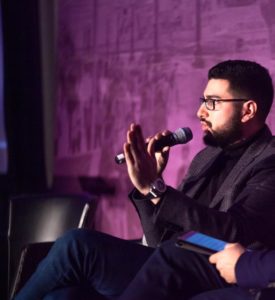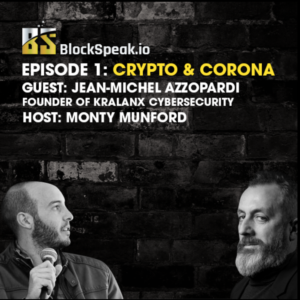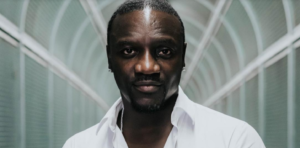 Welcome to Mob76 Outlook, Troy.
Welcome to Mob76 Outlook, Troy.
We’ve heard a lot about your work in blockchain at Volvo. Can you tell us more?
Troy: In March this year, the Volvo Group took a significant step towards transforming its transport and logistics by launching a new network, Logivity, based on blockchain.
My role as the enterprise architect encompassed the design of the blockchain network, the underlying data model and the development of our first service, Logify Connect.
Although the project was challenging, it was equally rewarding, presenting a steep learning curve for the entire team. My responsibilities included everything from value proposition development for the ecosystem to ensuring GDPR compliance and privacy by design, drafting terms and conditions for the service, supporting business regulatory alignment, and integrating blockchain data into an enterprise-grade ERP system. This project was an amalgamation of technology, law, and business – a real-world application of blockchain at its best.
Blockchain technology is known to enhance the resilience and transparency of
supply chains. How has Volvo taken advantage of these benefits?
Troy: The fragility of supply chains became apparent during the pandemic, increasing pressure on the transport and logistics industry to improve transparency, efficiency, and resilience. However, there are complexities involved. While blockchain technology
inherently promotes transparency, there’s a threshold beyond which transparency can threaten a company’s competitive advantage and create risk.
This means that while designing industry networks, it is essential to strike a balance between transparency and competition. This can be achieved by giving network members significant control over their information, including the ability to dictate whom they share it with. This intricate balance is key to delivering the benefits of blockchain while preserving a competitive edge.
Can you elaborate on your previous engagements with enterprise blockchain projects?
Troy: Over the last five years, I’ve been privileged to lend my expertise to more than ten distinctive enterprise blockchain ventures. Notably, one of my most challenging projects in 2017 involved tokenising REIT (Real-Estate Investment Trust) certificates. This ambitious endeavour sought to confront the liquidity issues often encountered in the real estate sector, using blockchain to tokenise tangible assets and consequently open up direct avenues for consumers to invest in property markets.
Another ground-breaking project involved amalgamating identity, healthcare data, and
entitlements within a public healthcare ecosystem. This intricate blockchain application
called for a nuanced understanding of data immutability and discerning what information
could be stored on-chain, given the rigorous data privacy regulations in the EU and
elsewhere.
As I observe enterprise blockchain trends, I perceive identity as an integral element gaining traction. This is a space that I’ve been eagerly exploring in recent years, and foresee it playing a critical role in the evolution of enterprise blockchain.
Could you share how you became interested in blockchain technology?
Troy: My journey with blockchain started in May 2017 when I attended MoneyConf as a business strategy consultant. I met a start-up founder and his investor with a novel
blockchain business concept at the conference. Within two months, I found myself as the CEO of a blockchain company, preparing for an ICO and presenting to family offices in Monaco.
By the end of 2017, as regulators in the UK started scrutinising ICOs more closely, we
terminated the ICO, deciding that ‘I don’t look good in Orange’; That six-month period was a crash course in blockchain. I got to grips with the technology and the business models,pros and cons and an understanding of the deep-rooted egalitarian philosophy of Bitcoin believers.
I took away an awareness that there are no experts in this space. We are still
learning; we are all still ‘rookies’. And with my newfound knowledge, I started offering
corporate strategy advice and training under Blockchain Rookies banner as well as being a blockchain columnist for London publication CityAM.
Many people need clarification on blockchain with cryptocurrency. Could you clarify the difference for our readers?
Troy: Yes, the difference between blockchain and cryptocurrency still needs to be clarified for many. The easiest way to distinguish them is to compare blockchain and crypto to the Internet and email.
All email runs on the Internet, but the Internet supports so much more than just email.
Similarly, all cryptocurrencies operate on blockchain, but blockchain has wider applications beyond cryptocurrencies.
Blockchain technology is the infrastructure that allows cryptocurrency (and other services, like transport and logistics and supply chain) to operate in a multi-stakeholder environment, without a centralised intermediary like a bank or a broker.
Over the past five years, my work has been helping enterprises understand how to use
blockchain to create incremental business value. This involves explaining how blockchain
fosters trust among multiple distrusting parties and helps reduce reconciliation and dispute resolution costs. I also dedicate much of my time to demystifying (and usually debunking!) concepts around crypto tokenomics and their price-value dynamics.
Beyond educating about crypto, I also work to explain that non-fungible tokens (NFTs) are not just digital art (and technically they aren’t even digital art!) – that Web3 is primarily a Utopian vision of a new world that will struggle with getting funding – and how DeFi (decentralised finance) is often not very decentralised at all because if DeFi was truly decentralised it wouldn’t be profitable and the user experience would be terrible.
Your personal journey seems fascinating. You’re an American residing in Lisbon with a home in London. How did this journey unfold?
Troy: I was born and raised in Missouri on a 4,000-acre farm with 1,000 head of beef cattle. But I was allergic to everything around me. At 12, I found a different path through computers, which promised an environment free from allergens.
Over the years, my career has taken many turns. I’ve developed flight simulators for military aircraft, sold computer systems for image processing and 3D graphics, worked in data centres and telecoms infrastructure, and even had a stint at Nokia making devices.
I’ve founded a start-up, guided start-ups on value propositions, business models, and market strategies, and engaged in innovation projects across industries such as big pharma and digital music. I’ve lived in various European cities, including Amsterdam, Zurich, Helsinki, and Munich, and spent more than15 years in London. I’ve been residing just South of Lisbon in Portugal, since the end of 2020. It’s a long way from my Missouri farm.
What are your plans for the rest of 2023 and 2024, specifically in terms of aiding other companies in understanding enterprise logistics?
Troy: My recent experiences with Serai, an HSBC subsidiary in Hong Kong, and the Logivity project at Volvo Group have led me to develop a keen interest in supply chain sustainability.
The transport and logistics industry, largely unchanged in the last 60 years, holds immense opportunities for digital transformation. I’m particularly excited about bringing innovative ideas from concept to reality. Navigating the complexities of legal, regulatory, and compliance issues, confronting corporate culture and politics, and challenging corporate norms offer a thrilling experience.
If there’s resistance, it signifies that what we’re working on is truly transformative. I’m passionate about engaging in projects that can transform an entire industry, not just a single enterprise. My primary focus areas for the coming years include supply chain, transport, logistics, sustainability, identity, and digital transformation.
As we wrap up, could you share your thoughts on the future trajectory of enterprise blockchain?
Troy: Enterprise blockchain often becomes collateral damage in the wild swings of public sentiment towards the cryptocurrency world, and more recently, phenomena like Web3 and the metaverse. These perceptions are not particularly useful, nor are they the primary hurdles. Jason Kelley from IBM Blockchain once wisely noted that ‘enterprise blockchain is a team sport’. This rings true, as blockchain networks fundamentally serve as infrastructure.
They lay the groundwork for secure collaboration among network participants and facilitate data and value exchanges fluidly. However, willingness to participate can be an issue.
Blockchain fosters coopetition – a novel synergy of collaboration and competition. It
brings efficiency via data transparency and control but doesn’t necessarily promote one participant’s market share over another. It does not endorse the aggressive notion of annihilating competition.
The future of enterprise blockchain, I believe, lies in embracing a perspective that Volvo
Group’s Martin Lundstedt championed at COP26: ‘partnership is the new Leadership’.
When enterprises recognize the value of collaboration towards common objectives—like
sustainability—enterprise blockchain will advance to its next phase. This shift in mindset will ultimately drive the future of blockchain in business settings.
Thanks, Troy, we appreciate your strong blockchain insights, thanks for sharing
My pleasure, thanks for having me.




